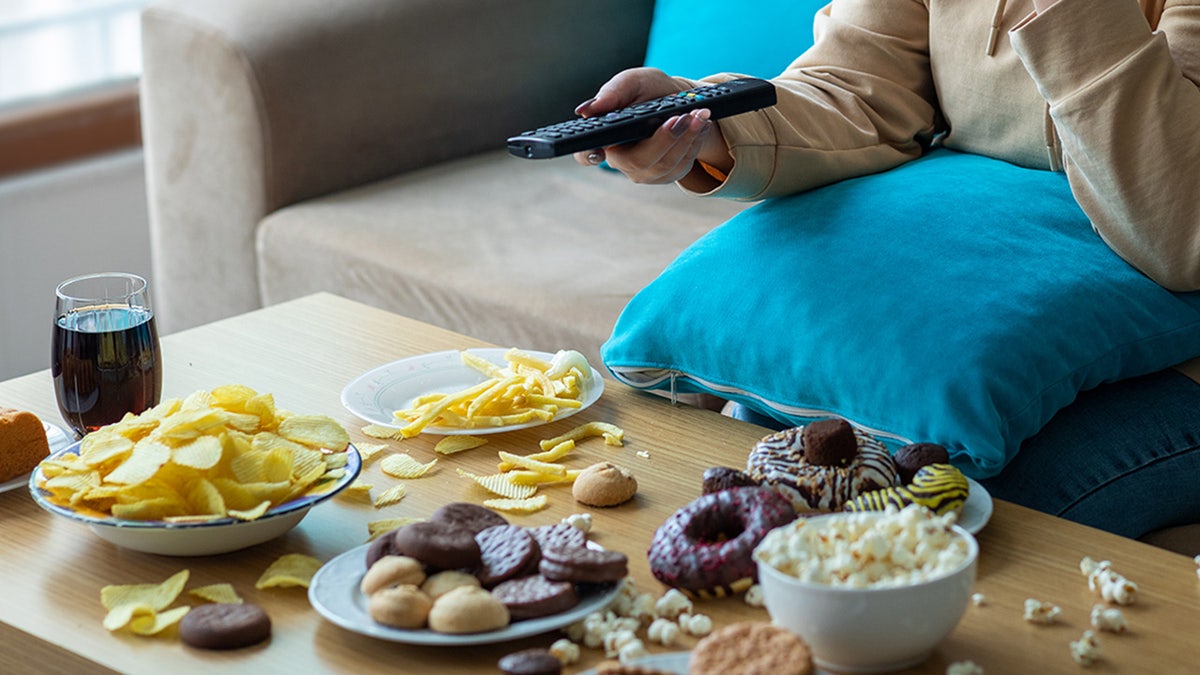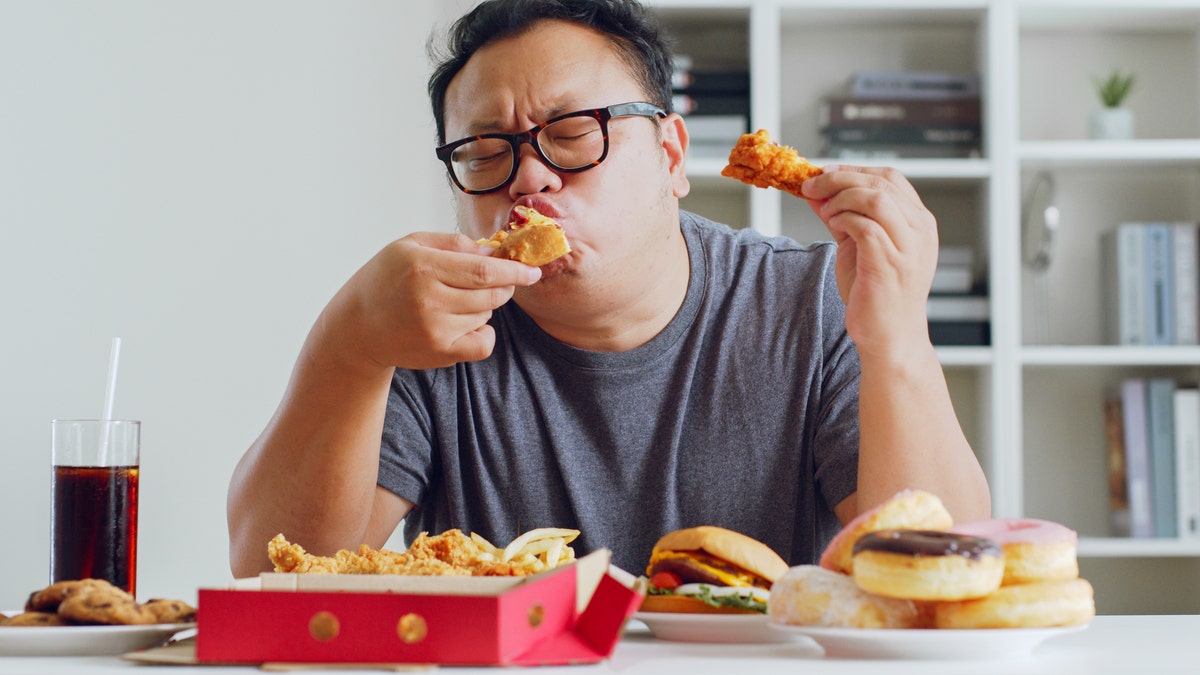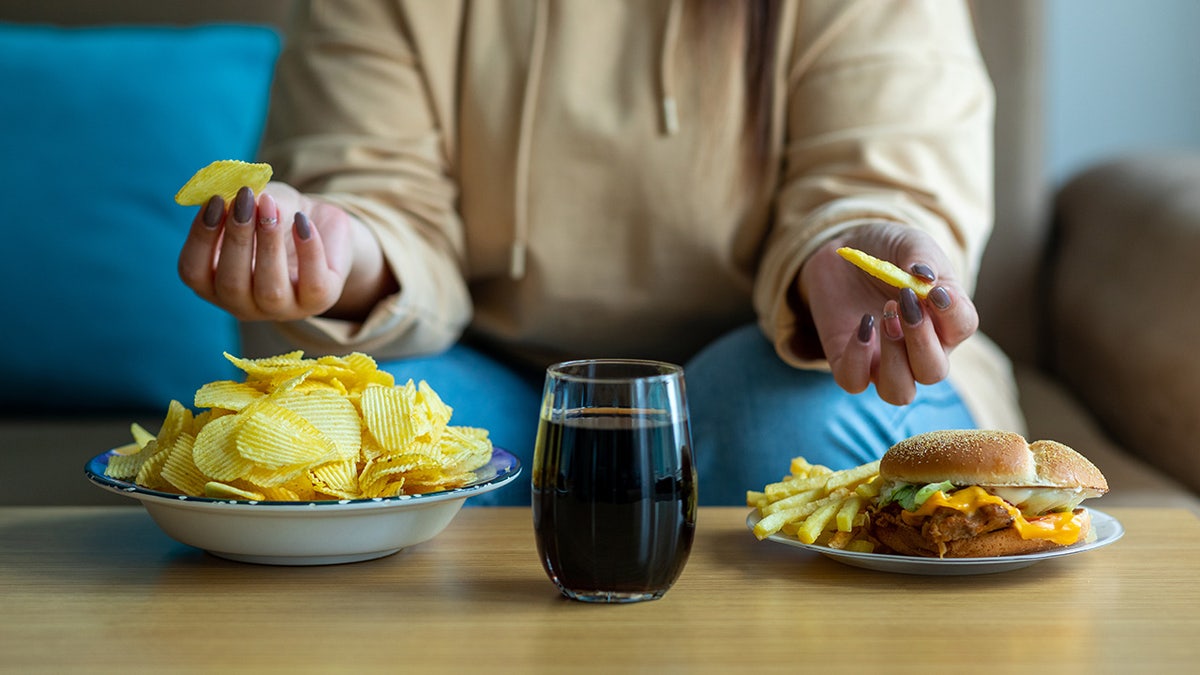

Ozempic and other weight-loss drugs may be cutting through "food noise," yet the junk food industry is only getting louder, some medical experts claim.
"Ozempic is breaking the food addiction cycle – but Big Food isn't going down without a fight," Dr. Mark Hyman, an internationally recognized advocate for functional medicine, said in a recent Instagram post.
"For decades, ultraprocessed foods have been engineered to hijack the brain's reward system – perfecting the 'bliss point' of sugar, salt and fat to keep people hooked," the physician also said.
CAN'T STOP THINKING ABOUT YOUR NEXT MEAL? IT'S CALLED FOOD NOISE, HERE'S WHAT TO DO
As Americans work to take hold of their health and wellness – and as the government cracks down on artificial food additives – the snack food industry appears to be evolving to outsmart both drugs and lifestyle changes, according to some observers.
"Big Food isn't happy," Hyman continued, expressing his point of view. "Our food system is broken. It's built to create addictions, push ultraprocessed junk and profit off public health crises."

The snack food industry appears to be evolving to outsmart both drugs and lifestyle changes. (iStock)
Weight-loss and life coach Charles D'Angelo, based in St. Louis, Missouri, agreed with that assessment.
"The food industry is one of many things evolving to outsmart our judgment sometimes," D'Angelo told Fox News Digital.
THE WORST FOODS TO BUY IN THE SUPERMARKET AND THE BETTER CHOICES INSTEAD
"They are even outsmarting these medications and different health trends by engineering foods that bypass your hunger and can ultimately lead you to be more reactive than you otherwise would be."
Fox News Digital reached out to Novo Nordisk, the manufacturer of Ozempic, for comment.

Hyper-palatable foods (HPF) are designed with combinations of palatability-inducing ingredients, fat, sugar and carbohydrates. (iStock)
Hyper-palatable foods (HPF) are designed with combinations of palatability-inducing ingredients, fat, sugar and carbohydrates that together enhance a food's deliciousness and produce an artificially rewarding eating experience, according to the National Institutes of Health (NIH).
HEALTH-CONSCIOUS AMERICANS EMBRACE YUKA APP TO GUIDE GROCERY SHOPPING CHOICES
The Consumer Brands Association, based in Arlington, Virginia, represents the interests of the consumer-packaged goods (CPG) industry.
"The makers of America's trusted household brands deliver safe products to consumers and innovate to provide them with healthier options," Sarah Gallo, senior vice president of product policy for the Consumer Brands Association, told Fox News Digital.

"For decades, food and beverage companies have taken their cues from consumers on what products they want in the marketplace to meet their dietary and health goals." (iStock)
"No industry is closer to the consumer than this one," she added.
"For decades, food and beverage companies have taken their cues from consumers on what products they want in the marketplace to meet their dietary and health goals – whether it's options low in sugar, sodium and saturated fats, no artificial colors or low-carb, high-protein and high-fiber options."
D'Angelo said that even without added ingredients, however, marketing campaigns often mislead consumers into purchasing and eating or drinking foods they think are healthful when they're not, D'Angelo said.
"That's not nutrition. It's marketing."
"They're not just selling junk food anymore," D'Angelo said.
"How many things do you see when you go down the grocery store aisle that say high-protein or low-carb, but they're still ultraprocessed? And it's engineered to hook you. That's not nutrition. It's marketing."
Gallo said her organization is aligned with the goal of radical transparency and aiding consumers in making informed choices.
"The industry has been actively engaged in initiatives to improve nutritional information accessibility for over a decade," Gallo said.

"They're not just selling junk food anymore," a weight-loss and life coach told Fox News Digital. (iStock)
One initiative is Facts Up Front, a voluntary program that presents key nutritional information on the front of packaging, facilitating quick assessment by consumers.
Additionally, the industry has introduced SmartLabel, allowing consumers to access detailed nutritional information via QR codes.
For more Lifestyle articles, visit foxnews.com/lifestyle
Gallo said the Consumer Brands Association "stands ready" to work with the federal government "to continue to ensure the analysis of safe ingredients and increase consumer transparency."
She added, "It's also why we are working with Congress to ensure the [U.S. Food and Drug Administration] is properly resourced to carry out this important work and moving to mandatory notifications for new ingredients."
"We need clarity, awareness and a complete shift in mindset to take back ownership of our choices."
Still, D'Angelo said, misleading labels can give people a false sense of confidence in their personal choices.
"I see how people are being conditioned subtly and repeatedly to trust marketing over their own inner signals, their own inner judgment," he said.
"That's why we need more than just willpower or medications. We need clarity, awareness and a complete shift in mindset to take back ownership of our choices."
